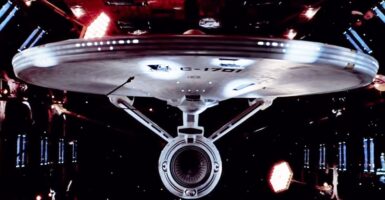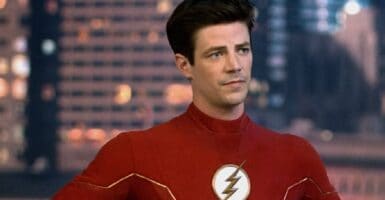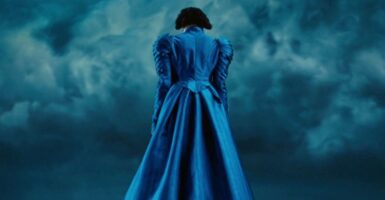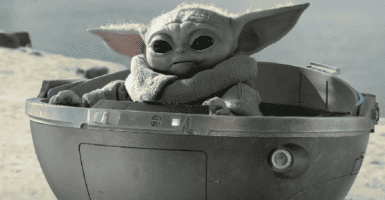Waiting For The Barbarians Review: Johnny Depp Tortures Nomads But Not His Audience
As far as a piece of production goes, Waiting for the Barbarians is a slam dunk.
This article is more than 2 years old
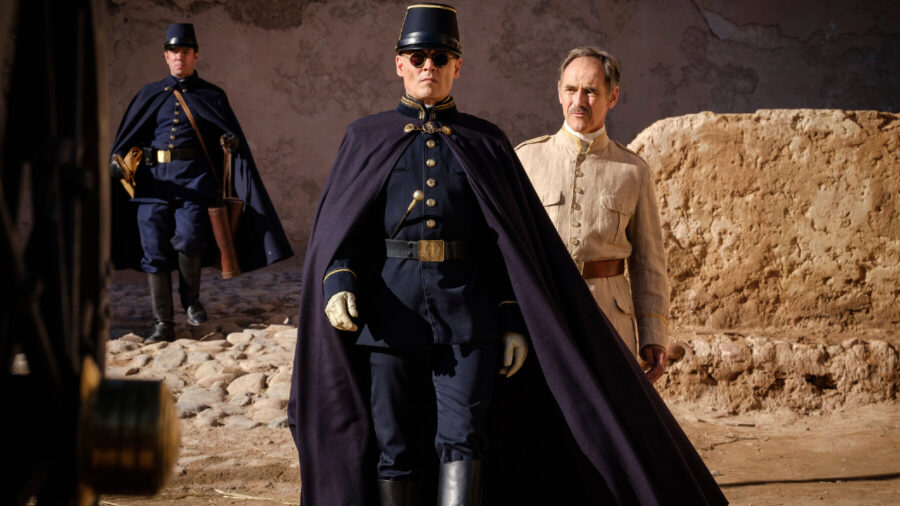
Waiting for the Barbarians is an adaptation of J.M. Coetzee’s 1980 novel of the same name. The story centers around an unnamed Magistrate (Mark Rylance) of a nebulous Empire who watches over a small settlement on the outskirts of the desert. Things are peaceful until Colonel Joll (Johnny Depp), an investigator in the Empire’s military police outfit, visits and begins interrogating and torturing the nomad population of the desert. Believing that these “barbarians” are planning an organized attack, the Empire begins stoking fear in the settlement, and the magistrate begins to question his beliefs about the Empire and its methods.
As far as a piece of production goes, Waiting for the Barbarians is a slam dunk. Director Ciro Guerra makes his English-speaking debut and he’s brought an immense amount of filmmaking prowess along with him. This movie is subtly gorgeous without ever showing off. The location shoots in Morocco and Italy are painfully beautiful and cinematographer Chris Menges is doing sublime work with lighting in this film. The costume design by Carlo Poggioli is on point with evoking exactly what it wants – recognizable colonialism and fascism – and the movie is never dull to look at.
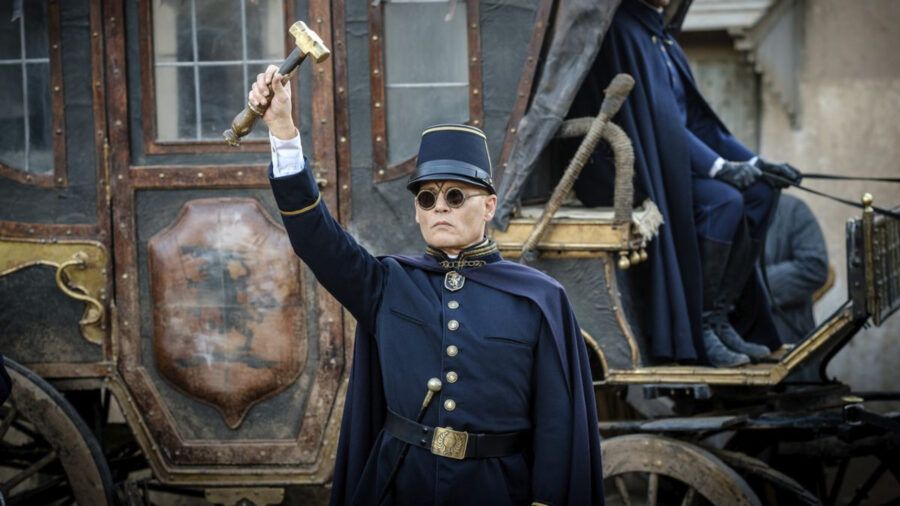
It’s equally compelling in the acting department. No one in the cast is doing any capital-A acting, so a lot of the performance work might read as understated or “quiet” to a lot of viewers. That’s a shame because Rylance does a great job as the weary, sympathetic Magistrate. But, it’s not the kind of acting that wins you statuettes because it’s not trying to be seen from space. The same goes for Johnny Depp as the villainous Colonel Joll. Depp cuts an impressively totalitarian figure with his little sunglasses and flowing cape. Waiting for the Barbarians shows that Depp still has the potential for greatness in him, but it’s in roles that ask him to engage in subtle choices rather than obvious ones. And though Robert Pattinson shows up solely as a more extroverted arm of Joll, he still brings his usual commitment to his brief screen time.
All of this is good news for Waiting for the Barbarians, but the movie has a fatal flaw: its script. Author J.M. Coetzee has adapted his own novel here and it’s also the novelist’s first credited screenplay. With that comes an approach to storytelling that feels uncomfortably literate. This is a methodical and seemingly leisurely movie which is a tone that often works well in prose, but cinema of this nature demands dramatic kineticism that’s missing in the finished product. That’s not to say that drama doesn’t occur in Waiting for the Barbarians, but rather that the way its presented feels like its being read to you instead of being shown to you.
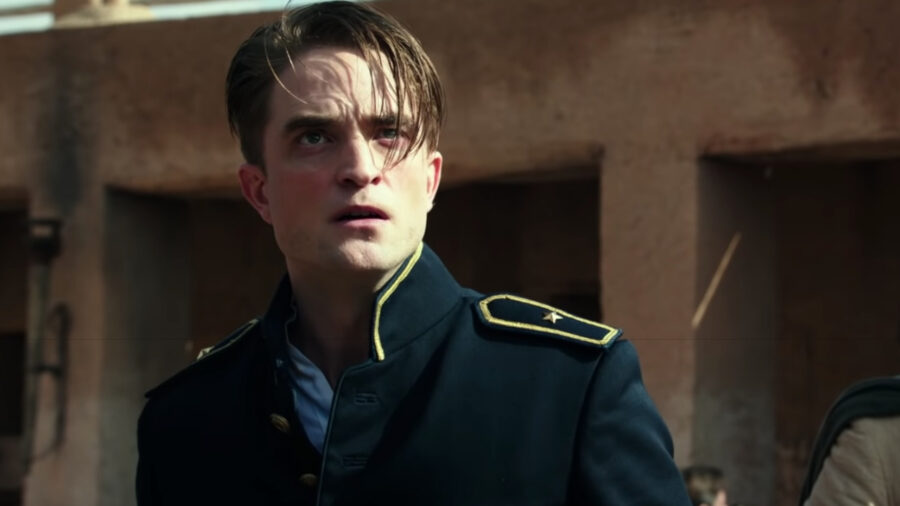
This has the strange effect of making the movie feel “slower” when it’s actually pacing itself out very well. The script seems to follow the path of the novel very faithfully, but fealty to the source material isn’t always the most important thing when it comes to adapting something for the screen. Waiting for the Barbarians sacrifices cinematic momentum for narrative pacing. This means that recounting how the movie plays out would make it sound eventful, but actually watching it play out suddenly feels sluggish. Guerra’s filmmaking decisions contribute to this languid feeling and it’s a bummer.
Waiting for the Barbarians also gives Coetzee the opportunity to rewrite his novel in some key ways. The most poignant and damning is the ending which is up for interpretation. Waiting for the Barbarians is a feel-bad movie through and through, yet Coetzee’s novel ends on a slightly more optimistic note. The film is anything but. By the end of the movie, things have completely disintegrated and the fear that the Empire instilled seems to have passed on to a new generation. It’s a sober and crushing ending that might also pose a more defeated position than Coetzee took forty years ago when the novel was published: maybe the Empire deserves to fall.
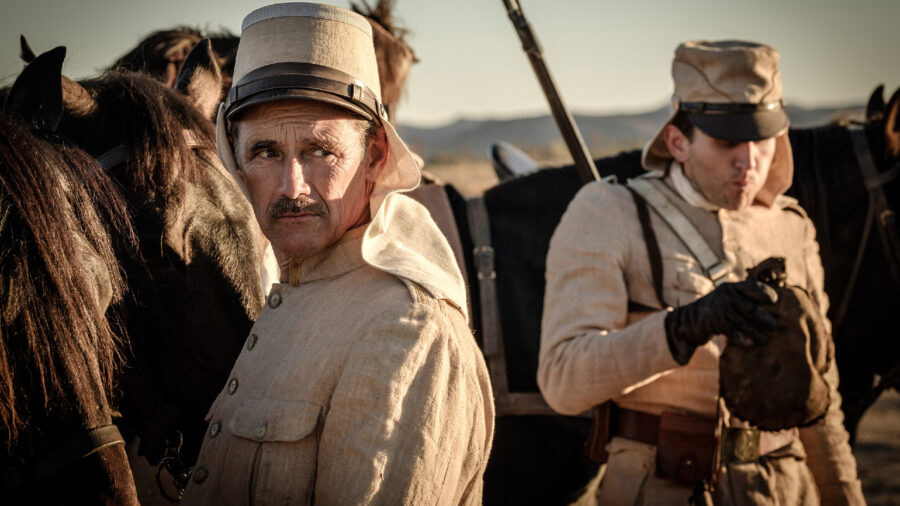
There will certainly be strong sociopolitical and topical allegories to be made when watching Waiting for the Barbarians – all the talk in the film about “the border” and seeing non-white people in cages and deplorable conditions certainly dredges up America’s current response to Mexican immigrants – and the movie invites them at every turn. The allegory here is strong and executed well but it’s understandable if it’s so dour that it turns most people off. Seeing a white militarized police force be violent aggressors and the cause of a non-white community’s downfall certainly hits extremely close to home right now.
And while Waiting for the Barbarians is a solid film, it’s also one that feels impossible to recommend. Very few will click with its literary tone and even those that do might find it all too gloomy to bear. There is hopelessness at the core of Waiting for the Barbarians and it’s a hopelessness that many of us feel when we look at the state of the world today. In that regard, the film is powerfully resonant. If the script and filmmaking could make the narrative action as riveting as the story’s thematic weight, Waiting for the Barbarians could have been a real winner. Instead, it has to settle for being disappointingly okay.










